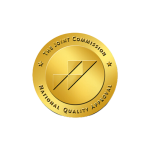What You'll Learn:
- Understand the dangers of combining Ambien and alcohol.
- Recognize the side effects.
- Learn about the effects on the body and mind.
- Consider the concerns around withdrawal.
Combining medications with alcohol is generally ill-advised, and the mix of Ambien (a common sleep aid) is particularly hazardous. This combination can lead to severe side effects and long-term health risks. Here, we'll delve into why mixing Ambien with alcohol is dangerous, what the specific risks are, and how these substances affect both the body and the brain.
What Happens When You Mix Ambien and Alcohol?
When Ambien and alcohol are consumed together, the effects of both drugs are not only combined; they are often amplified. The mix can lead to unpredictable and dangerous behavior, significant impairment of mental faculties, and severe physical side effects. The sedative effects of this medication intensify when combined with a depressant, increasing risks of deep sedation and possible respiratory distress.
What Are the Side Effects of Mixing Ambien and Alcohol?
The side effects can vary from mild to life-threatening. Commonly reported side effects include extreme drowsiness, dizziness, confusion, impaired coordination, and slowed or difficulty breathing. In more severe cases, there may be risks of unusual behavior, such as sleepwalking, engaging in activities while not fully awake, and not remembering those activities later.
What Are the Effects?
The risks include sleep-related behaviors like sleep-driving, eating, walking, or phone use without awareness, heightened by combining this medication with a depressant. These behaviors can occur without the memory of the activity the next day, which increases the risk of accidents and injuries.
Can You Drink Alcohol with Ambien?
Avoiding depressants while taking this medication is strongly recommended. Combining this medication with alcohol intensifies its sedative effects, increasing the likelihood of severe side effects and dangerous consequences. The interaction between these substances can impair your ability to perform tasks that require focus and coordination, such as driving.
Ambien and Alcohol Withdrawal
Withdrawal can be particularly challenging because both substances influence the central nervous system. If someone frequently combines this medication with depressants and then quits, they may face heightened withdrawal symptoms compared to stopping either alone. These symptoms can include nausea, vomiting, tremors, irritability, and seizures in severe cases.
Managing Risks and Seeking Help
To manage the risks associated with Ambien and alcohol, it is crucial to avoid combining these substances. If you or someone you know is struggling with dependency on alcohol, Ambien, or both, seeking professional help is important. Treatment options may include medical detox, counseling, and support groups tailored to address both sleep disorders and substance abuse.
If you or someone you love is dealing with issues related to the misuse of Ambien and alcohol, please seek professional help. At American Recovery, we provide comprehensive treatment programs designed to address substance abuse and co-occurring disorders. Don’t wait until the problem escalates. Contact us today at 866-484-2502 to find out how we can help you or your loved one start on the path to recovery and a healthier, more stable life.


